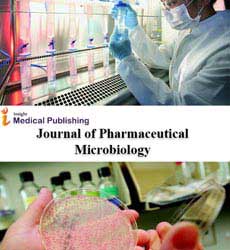Abstract
Application of molecular imprinting technique for preparation of 5-flurouracil nanoparticles: testing antitumor activity in mice
Recently, a considerable attention has been paid to nanotechnology. This study examined the potential chemotherapeutic effect of a molecularly
imprinted nanopreparation of 5-flfluorouracil against Ehrlich solid tumors grown in mice after transplanting tumor cells to female mice. Mice
were classified as; Group 1: control solid tumor bearing mice. Groups 2&3: tumor bearing mice treated with 5-flfluorouracil (5 and10 mg/kg, per
oral). Groups4&5: tumor bearing mice treated with nano-5-flfluorouracil (5 and10 mg/kg, per oral); all treatments continued for three weekly.
Treatment with nano-5-flfluorouracil produced greater antitumor effffect in comparison to free 5-flfluorouracil as designated by greater apoptosis
area in the dissected tumors and lower tumor mass. In addition, less count of mitotic fifigures and greater necrosis area were observed in the
tumor specimens with a decline in the number of proliferating nuclei in comparison to free 5-flfluorouracil. In addition, the findings revealed a
significant down-regulation of caspase-3 and vascular endothelial growth factor tumour expression. Together, these findings further affirm the
ability to use nanotechnology to increase 5-fluorouracil anticancer efficacy
Author(s):
Sawsan A. Zaitone
Abstract | PDF
Share this

Awards Nomination
Google scholar citation report
Citations : 36
Journal of Pharmaceutical Microbiology received 36 citations as per google scholar report
Abstracted/Indexed in
- Google Scholar
- Secret Search Engine Labs
Open Access Journals
- Aquaculture & Veterinary Science
- Chemistry & Chemical Sciences
- Clinical Sciences
- Engineering
- General Science
- Genetics & Molecular Biology
- Health Care & Nursing
- Immunology & Microbiology
- Materials Science
- Mathematics & Physics
- Medical Sciences
- Neurology & Psychiatry
- Oncology & Cancer Science
- Pharmaceutical Sciences

